- | 9:00 am
I worked with an AI productivity coach and mostly just found it annoying
Rize is a smart distraction blocker with too many blind spots.
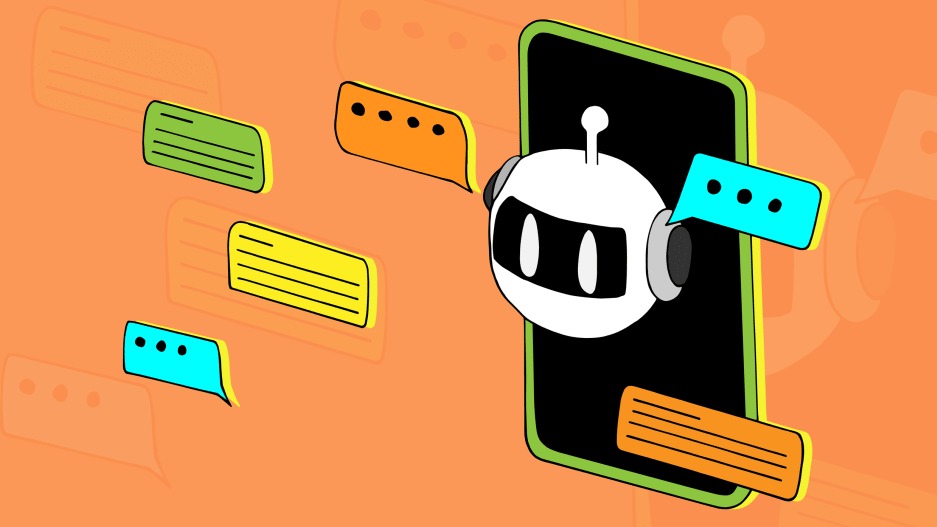
For the past month, I’ve been letting an AI app called Rize analyze everything I do on my work computer.
It sees every app I open, every website I visit, and every appointment on my calendar. It knows, down to the minute, how much time I spend writing and how often I’m checking email, and it’s well-aware of when I’m wasting time on social media. I’m reminded of these things every time Rize encourages me to focus or blocks my biggest distractions.
All of this is in service of making me more productive, or at least it’s supposed to. Rize, whose main features cost $17 per month or $120 per year after a seven-day trial, bills itself as an “AI productivity coach” that encourages greater focus and healthier work habits. Cofounder Macgill Davis likens it to the fitness reminders you get on an Apple Watch, but for your job.
“Even these little nudges—like, get your steps in, or time to stand up—it’s really had an impact on people,” he says. “We really view Rize in the same way, but from a work sense.”
But while Rize has given me some helpful kicks in the pants over the past month, it’s gotten in my way just as often. AI coaching could be useful for work someday—especially if, as in Rize’s case, it’s aimed squarely at personal use instead of employee surveillance—but measuring productivity is a lot trickier than counting steps.
HOW RIZE WORKS
Rize is essentially a cross between a distraction blocker and pomodoro timer, with a side of AI-generated insights. After installing it on your computer and connecting your calendar, you supply some basic information about your work, and it begins monitoring every app, document, and browser tab that you open during the workday.
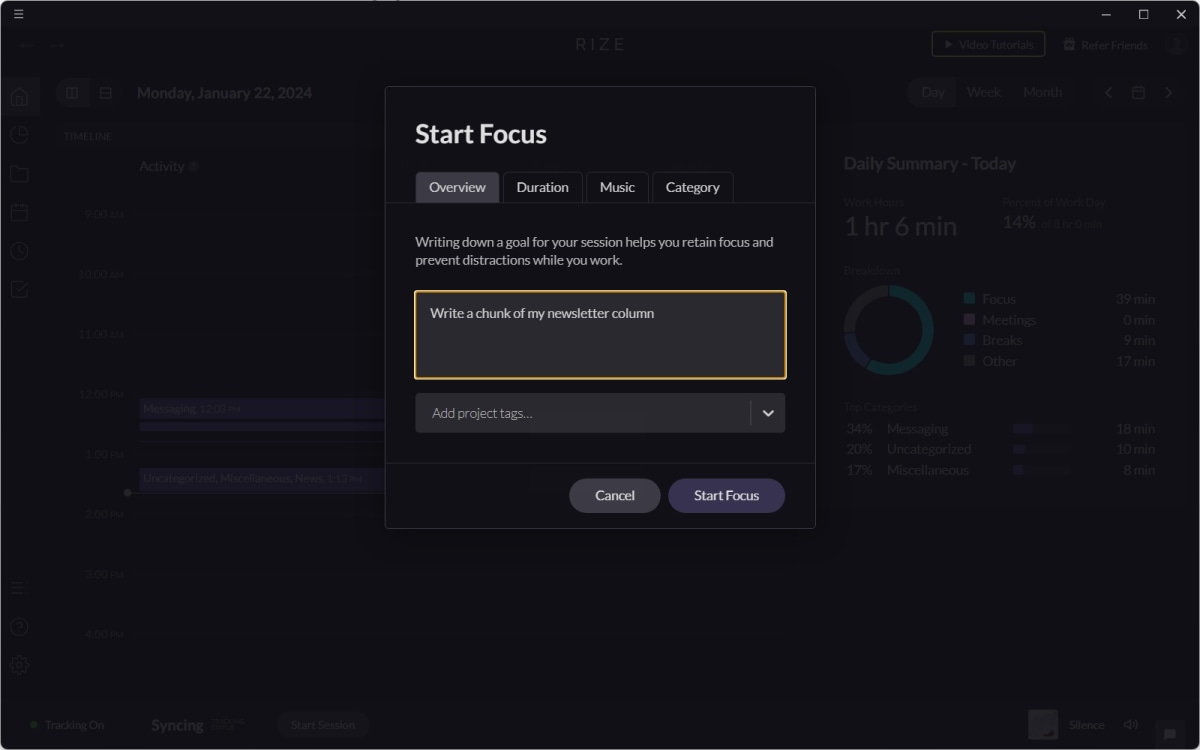
When you sit down to work, Rize encourages you to begin a “Focus Session,” during which it will automatically screen for distracting activities. When it detects that you’re off-task, it throws up a splash screen encouraging you to get back to work. Between each session, the app offers break times during which you can use whatever app you want.
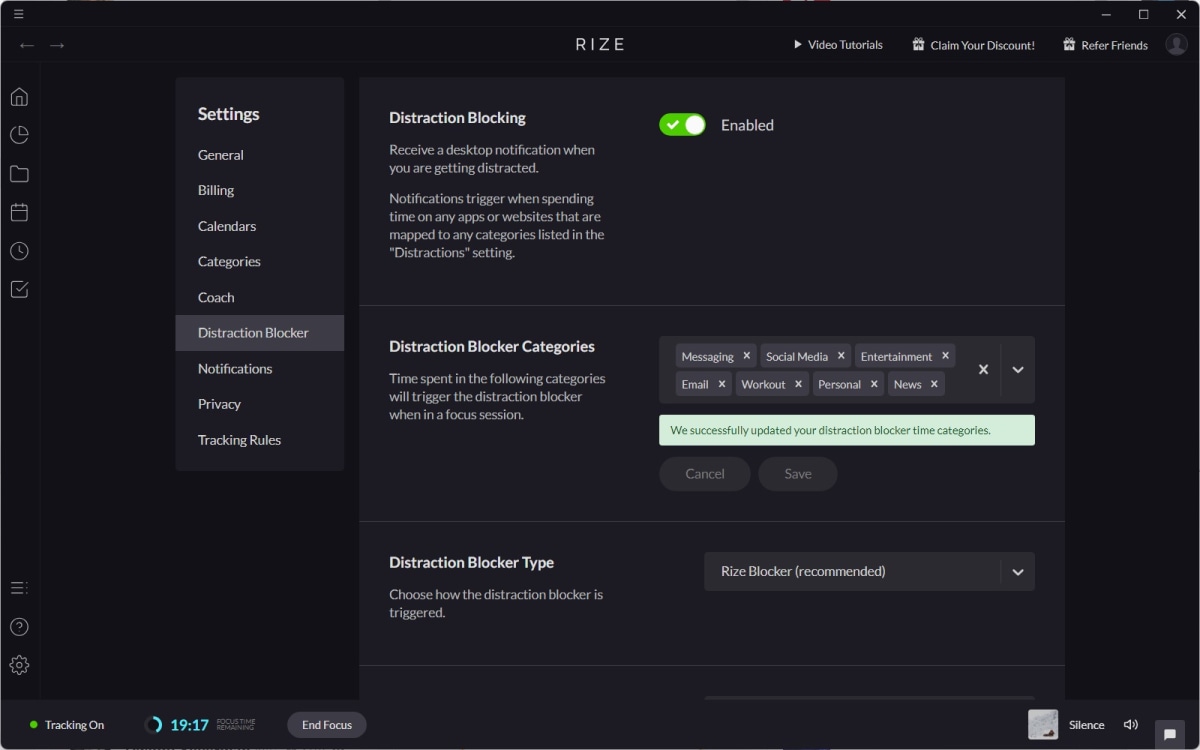
Distraction-blocking apps and extensions aren’t new, but Rize is notable for how little setup it requires. It automatically detects major email services, messaging apps, and social media sites, and it will flag unrecognized apps so you can categorize them accordingly. Digging into Rize’s app lets you tweak the rules and set up new ones.
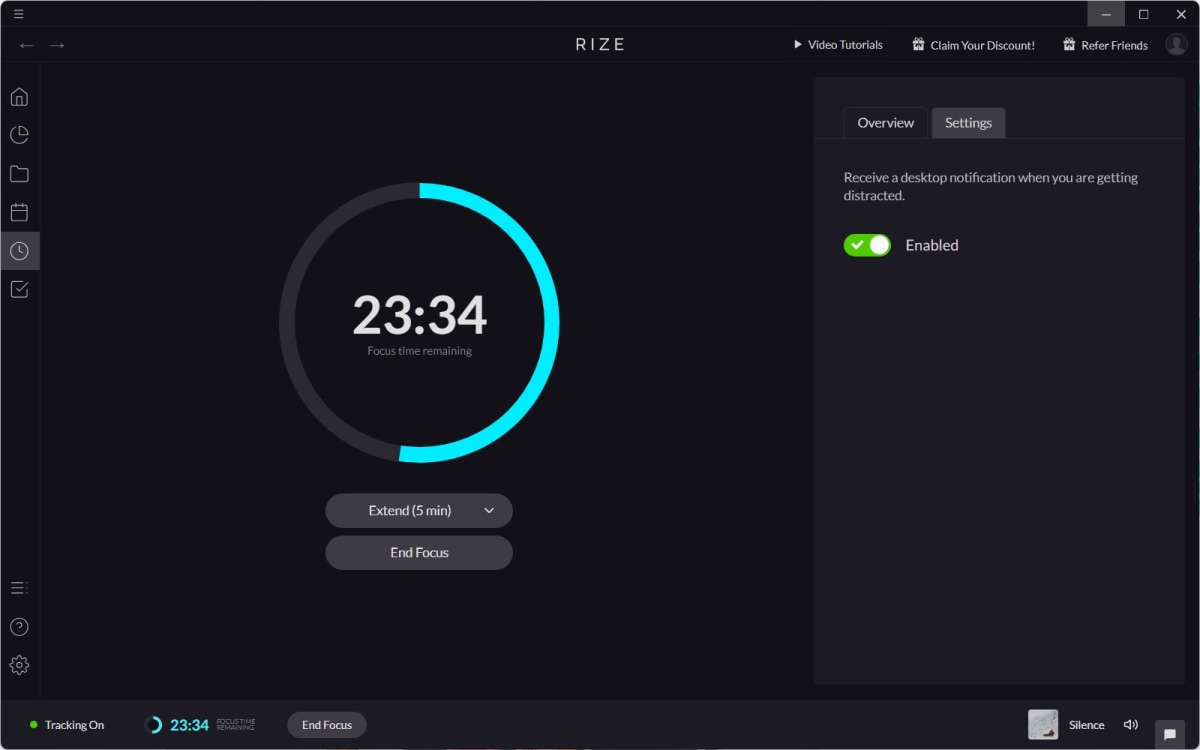
On top of the core focus timer, Rize offers a handful of other productivity tools. You can track projects, set up broad productivity goals (such as reducing time spent in meetings), and listen to an array of ambient sounds.
At the end of each day, Rize sends an email breaking down your time spent in each category and on focus sessions as a whole. An AI-written “Insights” section provides related advice, such as considering a block of time for email and understanding your most productive times of the day. (Those same insights are delivered via daily and weekly emails as well.)
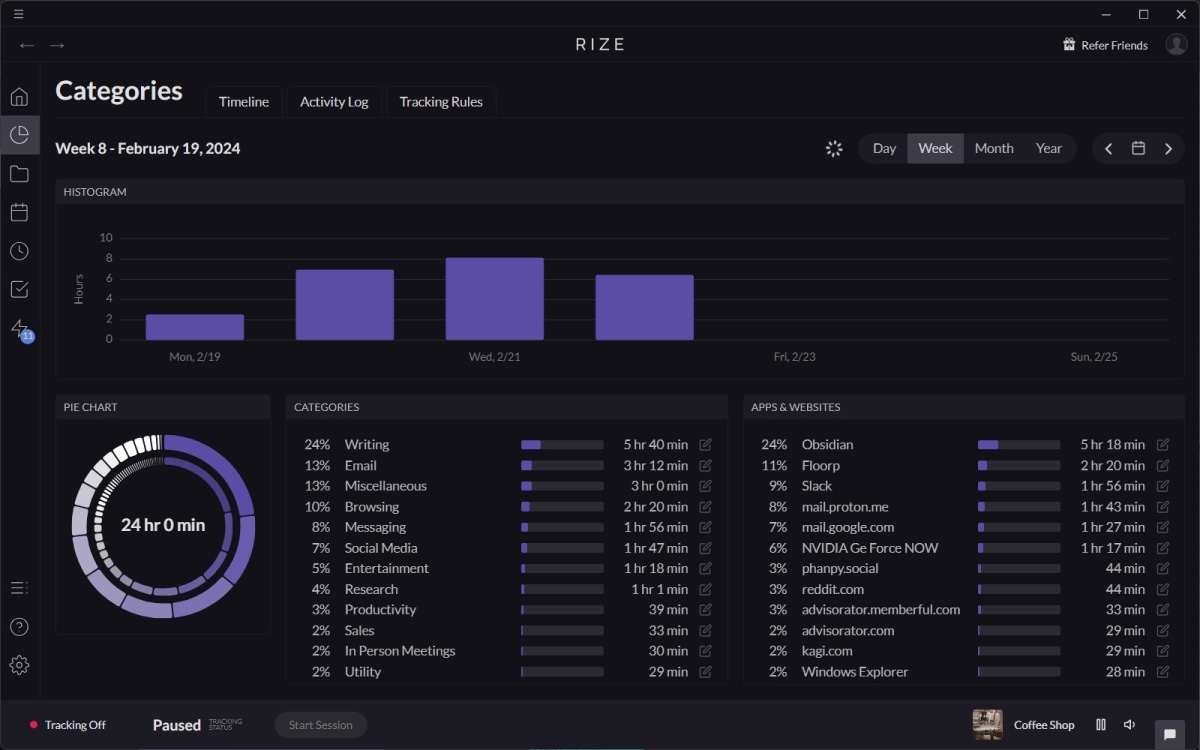
Davis notes that Rize doesn’t see the actual content of your apps—it’s merely tracking the titles of your active windows—and it offers various toggles to control what the app measures. (I found it off-putting, for instance, that Rize was collecting the names of other attendees in my calendar events, so I disabled that function.)
Still, Rize is uploading all of that data to Amazon Web Services, with the analysis of your activity happening in the cloud on a pseudonymized basis. You can redact your history at any time or set it to auto-delete after a week, two weeks, or a month, but the default behavior is to keep a record of everything.
On the upside, Davis says Rize is committed to being a product for workers rather than employers. While the company may consider selling the software to companies that want to offer it as a benefit for employees—perhaps with some aggregate information about how they spend their time—he says using it for surveillance is off the table.
“We will never be an employee tracking system, or spyware, or anything like that,” he says. “Our only goal is to help people work healthier, be more productive, and improve their focus.”
RESENTING THE COACH
If you can get past the inherent creepiness of letting an app monitor all your activity, Rize does have some appeal. I liked its occasional nudges to stay on task, and at least appreciated the idea of getting routine productivity reports.
But too often, Rize’s AI productivity coach felt too rigid, like a personal trainer that can’t recognize when to push a little harder and when to back off.
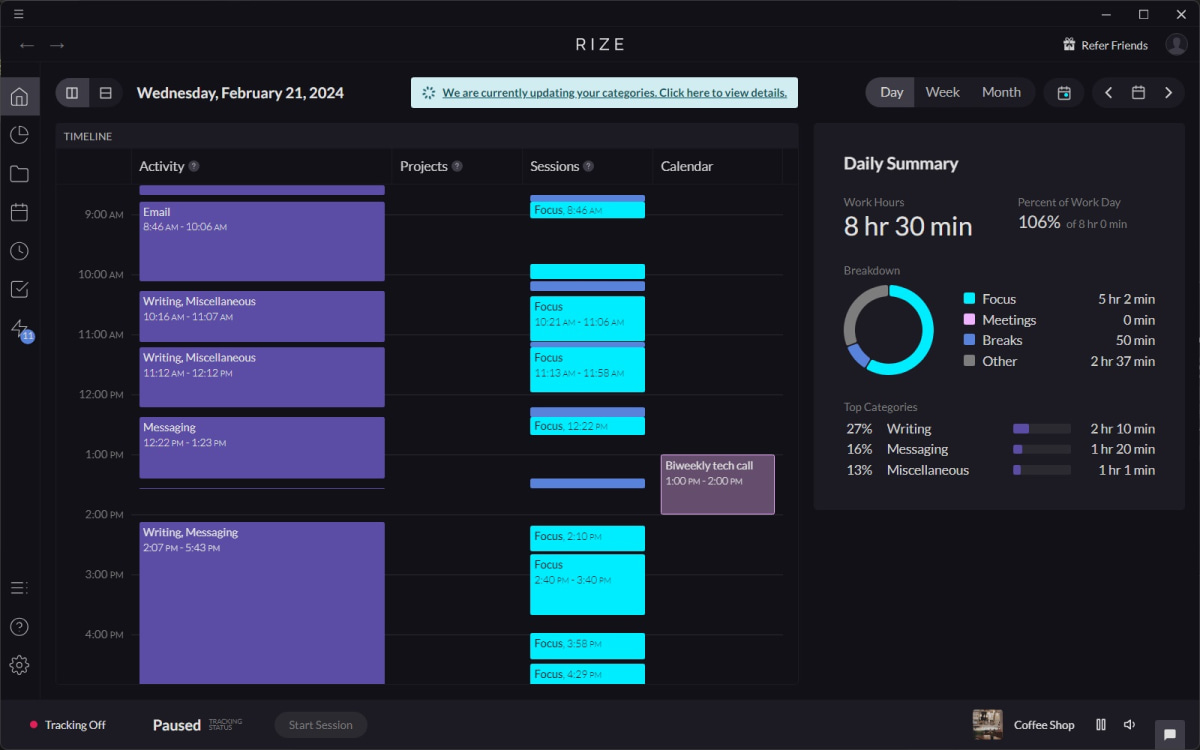
At the most basic level, Rize’s focus timers aren’t flexible enough. Many times I’d be deep in the flow of writing, only for Rize to declare that my focus session had ended. You can extend these sessions in five-minute increments via Rize’s pop-up menu, but I often wanted to write for another 15 minutes without being bothered. You can’t do that without stopping what you’re doing, dismissing Rize’s pop-up, and digging into the actual app, which to me defeats the purpose.
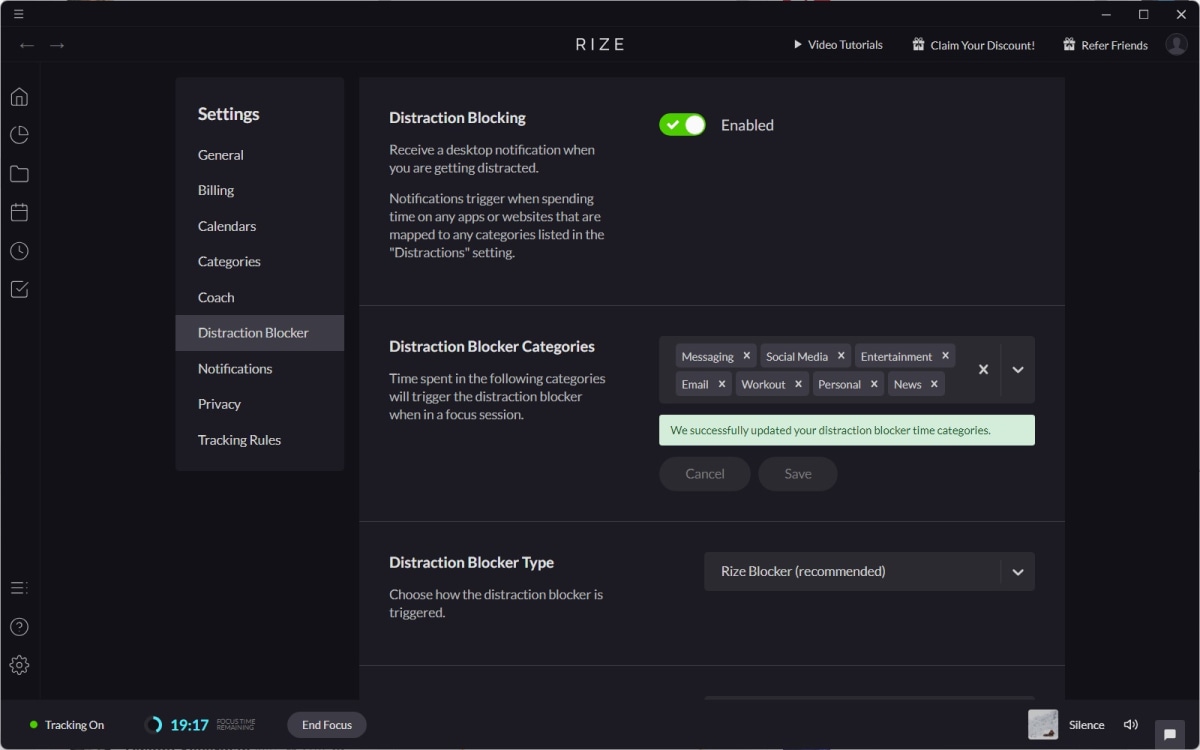
Rize also doesn’t know how to handle those ostensibly unfocused tasks that still require chunks of time to address. The software suggests blocking out time for emails, for instance, but offers no assistance in doing so. As a result I’d find myself nibbling away at email during break times, only for Rize to declare that it was time to get back to work.
The other issue for Rize—and it’s an inherent one—is that it’s measuring inputs, not outputs. While you can use Rize’s built-in project tracker and grade the quality of your focus sessions, it doesn’t offer a simple to-do list or plug into any external project management apps. As such, it’s hard to see any correlation between longer focus and getting more work done.
WHAT’S NEXT FOR RIZE
Rize’s Macgill Davis says the startup is working to make the software even more automated. By feeding every interaction back into the software’s algorithm, he hopes it’ll get better at tailoring its recommendations.
“[We’ll] get those nudges so correct that you can just log in, and you have a laid-out schedule with your meetings, your best time to focus, and your breaks, and you just know this is the way you can be the most productive and the most healthy,” he says.
I have my doubts. If anything, I’d prefer if Rize was more interactive, with easier ways to add more time to a focus session and extend the length of break times. The app should also leave room for something in between—the time spent sending emails or chatting with colleagues that isn’t so neatly categorized.
If Rize really wants to lean more into AI, perhaps it could let users provide more direct feedback to its coaching mechanisms. It’d be great if I could say “I just want you to leave me alone today,” or “I really need to focus on writing this morning,” and have Rize adjust its productivity nudges accordingly.
In the end, Rize felt like it was requiring too extra brainpower just to babysit the software, and I spent some long stretches with the app turned off just to avoid its nags. Doing so wasn’t great for my productivity scores, but I’m not sure it hindered my actual productivity all that much.







































